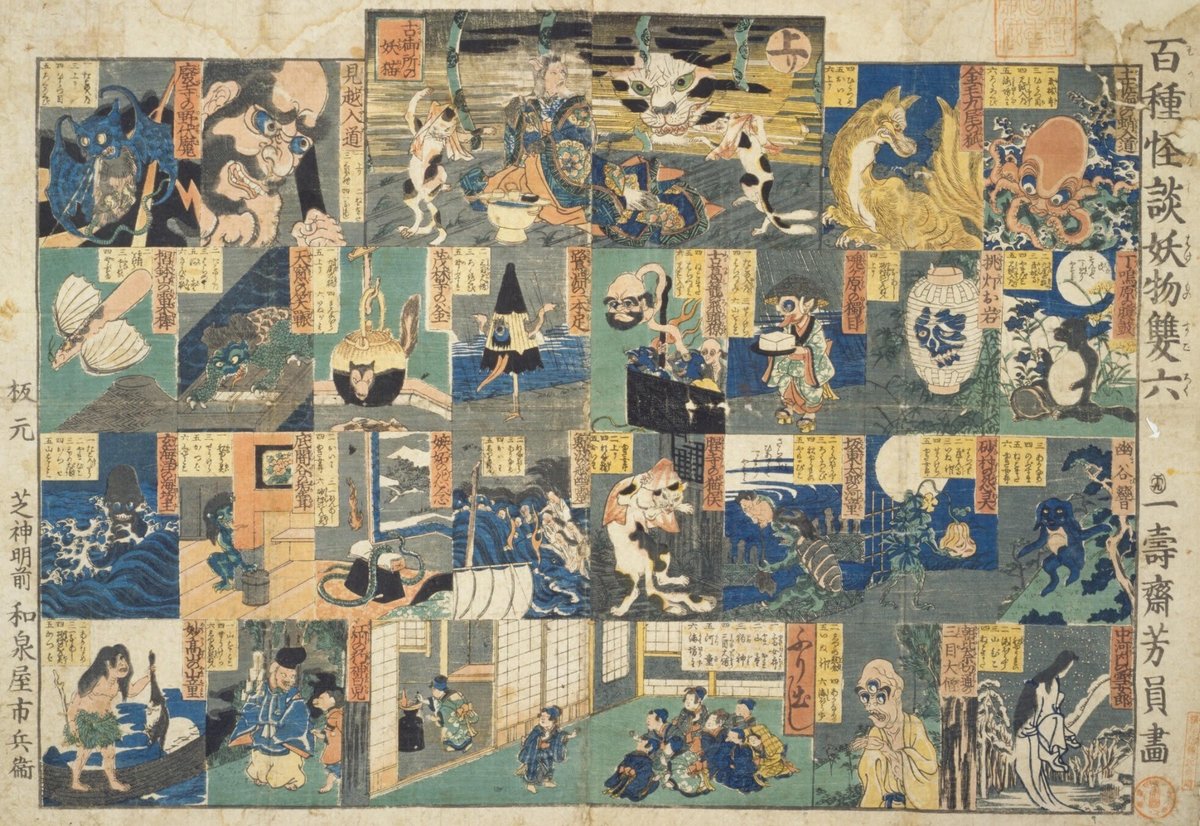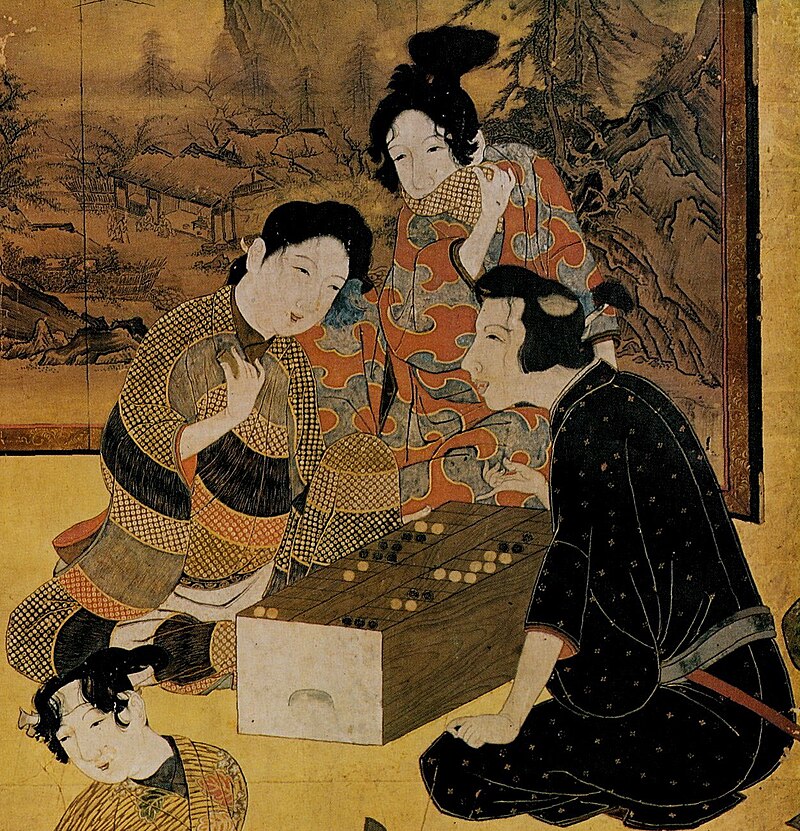I think tonight’s ghost story is a sweet one. I like it especially because this ghost is exactly the kind of ghost I would hope to become: one that comes back only to play board games.
Sugoroku is a famous Japanese board and dice game that originated in ancient China and came to Japan in the 8th century. It has evolved several variations; the one being discussed in this story is called “ban-sugoroku,” which is a game similar to backgammon. The best known variation is called “e-sugoroku” and is popular with young children today, although this is a different game than ban-sugoroku and more resembles games like Snakes and Ladders, where you throw dice and progress along a board track. This version became popular in the Edo period due to the printing press, and countless variations were created based on any theme you could imagine — novels, travel spots, even yokai!
Here’s an example of a yokai sugoroku game from the Edo period. How many yokai can you identify?

Meanwhile, ban-sugoroku also appears in lots of artwork and looks like this:

So how about it — would you play board games with a ghost?
How Ōmori Hikogorō’s Wife Died and then Came Back to Play Sugoroku
In Kameyama, Tanba Province, there lived a retainer named Ōmori Hikogorō, with a fief of 300 koku. His wife was famed for her beauty, however she died in childbirth. Hikogorō grieved deeply, but there was nothing else he could do.
His wife had an attendant who had served them since the age of seven. This girl grieved so bitterly that she attempted to kill herself fourteen or fifteen times within seven days. They somehow managed to calm her down, and eventually three years passed.
Hikogorō’s family members pressured him into once again taking a wife. His second wife was highly versed in propriety for a woman, and kept the first wife in her thoughts by performing daily prayers for her at the family altar, so that everybody said that surely the first wife rejoiced beneath the soil.
While the first wife was alive she loved sugoroku, and she was always playing with her attendant. Even after she died, perhaps due to her attachment to the game, she appeared every night for those three years to play sugoroku with her attendant.
One night the attendant said, “It has been three years that you’ve come here nightly to play with me. Ever since I was seven you’ve cared for me, and now I have grown into an adult. No matter how long I remain a servant, I could never repay your kindness. However, now I have a new mistress, and if it was ever discovered that you were visiting me every night, it might seem as though you came to bear a grudge against her. From now on, please do not come anymore.”
The dead wife replied, “Truly as you say, nobody would guess that I was actually attached to this sugoroku game. From this day forward, I will not come here.”
Saying this, she left. However, afterward, when the attendant told this story to Hikogorō and his wife, they said, “So that’s what it was?” And they had a sugoroku board made and placed before the first wife’s grave as an offering, and prayed for her with deep affection.

